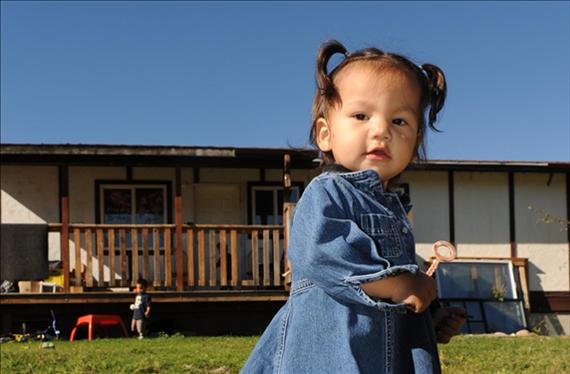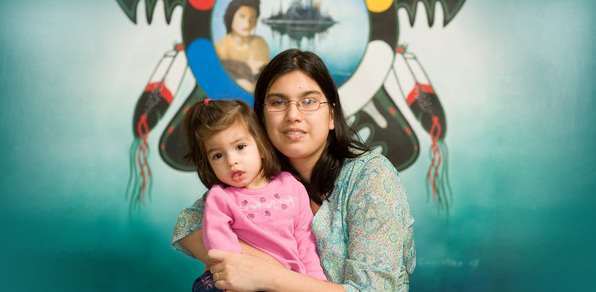Our Babies, Our Future: Aboriginal Birth Outcomes in British Columbia
In a new report, Dr. Janet Smylie from the School of Public Health at the University of Toronto looks at Aboriginal birth outcomes in British Columbia including infant mortality, preterm birth and birth weights. The report looks at these outcomes for both urban and rural births and examines the results in relation to health determinants, health services and health policy. It also provides information on the Aboriginal Maternal and Child Health Committee as a best practice in increasing aboriginal birth outcomes in British Columbia.

The report begins by acknowledging that the “… health of a community’s infants is understood to be a downstream indicator of the health of the community more generally, as well as a reflection of underlying social determinants of health. Measures such as infant mortality and the incidence of low birth rate are linked to social determinants such as adequate food supply, adequate housing, employment, education level and environmental exposures.”
The United Nations Declaration on the Rights of Indigenous peoples highlights a right to improved economic and social conditions including health, as well as the right for children to lead healthy, safe and well educated lives. In British Columbia, the birth outcomes of Aboriginal peoples proves that this right has not been fully actualized. The report provides the following analysis:
- Infant Mortality: While the amount of data currently available is somewhat inconsistent across Aboriginal sub-groups, it was generally found that overall death rates were at least twice as high for infants born to Aboriginal parents. This number is slightly higher for infants both in rural communities. It is also pointed out that most of the post-neonatal deaths recorded were due to preventable causes such as sudden infant death syndrome (SIDS) and infections, pointing to the need to address the difficult living conditions facing many Aboriginal families.
- Preterm Birth: While similarly inconsistent data is available regarding preterm births, the information that is available points to a similar pattern with preterm birth rates being between 1.5 and 1.8 times higher, with rural births reaching the later number.
- Birth Weight: Birth weight statistics vary greatly amongst the Aboriginal sub-groups identified in the report. Smylie points out that, in general, low birth rates are often associated with higher rates of illness and death throughout the life cycle and signal a need for increased maternity care and socioeconomic supporters. High birth rates and large for gestational age markers have been linked to the high and increasing rates of maternal diabetes for BC’s Aboriginal population and higher rates of birth complications.
The disparity in birth outcomes amongst Aboriginal and non-Aboriginal groups points to general health inequality in British Columbia. Smylie further points out that it is important to increase the quality and coverage of Aboriginal birth outcomes in order to provide a full picture of this health inequality. In fact, this lack of exclusion from basic public health survelience is a violation of the United Nations Declaration on the Rights of Indigenous Peoples.

The Aboriginal Maternal and Child Health Committee is offered as a best practice as it “… actively involves Aboriginal people from multiple jurisdictions in the design and delivery of health policies, programs and services.” It was initiated by the First Nations Health Council as part of the Tripartite First Nations Health Plan and works to address:
- The disproportionate mortality rate of Aboriginal children in BC.
- Implement hearing, dental and vision screening for Aboriginal children under 6.
- Implement a material access project to improve maternal health services for Aboriginal women and bring birth “closer to home and back into the hands of women”.
Smylie points out that “Indigenous peoples throughout the world believe that the health and happiness of their babies and children is the centre point of health for the whole community. As sacred gifts from the spirit world, children are and integral part of the family, the community and the culture of a people.” This article makes it clear that it is the social determinants of health that are impacting the birth outcomes and future of Aboriginal people in British Columbia.
To view the full report, please visit the National Collaborating Centre from Aboriginal Health.
